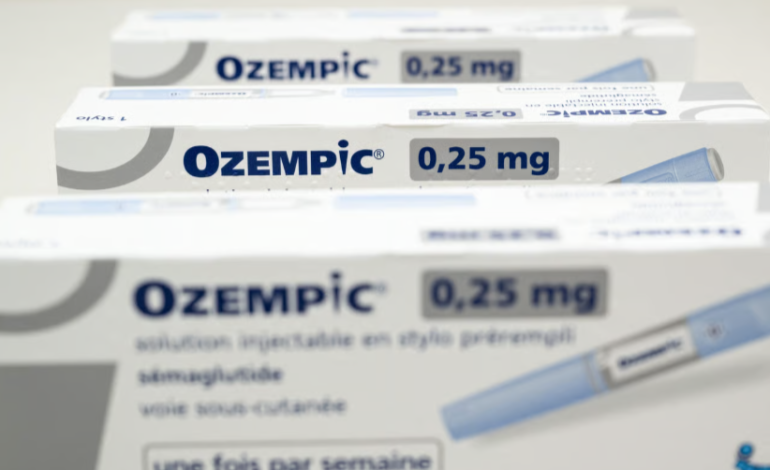A recent government-funded study suggests that medications originally designed for weight loss and diabetes treatment may also help reduce alcohol consumption.
The findings add to growing evidence that drugs like Ozempic and Wegovy, which regulate appetite, could also impact cravings for alcohol, tobacco, and even other addictive substances.
The study, published in JAMA Psychiatry, followed 48 adults over the course of nine weeks. The participants, who met the criteria for alcohol use disorder but were not actively seeking treatment, were split into two groups—one receiving weekly injections of semaglutide (the active ingredient in Ozempic and Wegovy), and the other receiving a placebo.
At the beginning and end of the study, participants were invited to a lab where they were given their preferred alcoholic beverage and allowed to drink freely. Throughout the study, they also recorded their drinking habits and alcohol cravings.
By the final weeks of the trial, researchers observed notable differences between the two groups:
- Reduced Heavy Drinking – Nearly 40% of those receiving semaglutide reported no heavy drinking days, compared to 20% in the placebo group.
- Lower Alcohol Consumption – Participants in the semaglutide group drank roughly half as much alcohol as those in the placebo group during their final lab visit.
- Decreased Cravings – Those taking semaglutide also reported a significant reduction in their overall desire to drink.
Interestingly, some participants who smoked cigarettes also reported a decline in their smoking habits, suggesting the drug may have broader effects on addictive behaviors.
Semaglutide belongs to a class of medications known as GLP-1 receptor agonists, which mimic gut hormones that regulate appetite and feelings of fullness. Scientists believe that these drugs may also impact the brain’s reward system, making alcohol—and possibly other addictive substances—less appealing.
Animal studies have shown that similar medications can reduce dopamine release in response to alcohol, potentially decreasing the motivation to drink. Researchers are now exploring whether these effects extend to other addictions, including opioid and cocaine use.
While the study’s findings are promising, experts caution that more research is needed before semaglutide can be widely recommended for alcohol use disorder. Currently, there are three FDA-approved medications for treating alcohol dependence, and doctors urge patients to consider existing treatment options.
“This is such promising data. And we need more of it,” said Dr. Klara Klein of the University of North Carolina at Chapel Hill, one of the study’s co-authors.
Other researchers, including Dr. Lorenzo Leggio of the National Institutes of Health, emphasize the need for larger and longer trials to confirm the results.
With input from the Associated Press, the Guardian, the New York Times, and Politico.










The latest news in your social feeds
Subscribe to our social media platforms to stay tuned